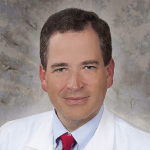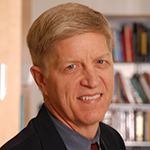New Appointments for Carlos Lozada, MD
 In the midst of the coronavirus pandemic, Carlos J. Lozada, MD, FACP, FACR, professor of clinical medicine, University of Miami Miller School of Medicine, has expanded his professional and volunteer duties. In May he was appointed chief (interim) of the Division of Rheumatology at the Miller School of Medicine, and he became president of the Panamerican League of Associations for Rheumatology (PANLAR) and chair of the International League of Associations for Rheumatology (ILAR) Executive Committee in August.
In the midst of the coronavirus pandemic, Carlos J. Lozada, MD, FACP, FACR, professor of clinical medicine, University of Miami Miller School of Medicine, has expanded his professional and volunteer duties. In May he was appointed chief (interim) of the Division of Rheumatology at the Miller School of Medicine, and he became president of the Panamerican League of Associations for Rheumatology (PANLAR) and chair of the International League of Associations for Rheumatology (ILAR) Executive Committee in August.
Dr. Lozada has been on the University of Miami faculty since 1994 and has served as director of the Rheumatology Fellowship Training Program since 1996. That program has been awarded the ACR Fellowship Training Award nine times. Dr. Lozada himself was awarded the 2020 ACR Distinguished Fellowship Program Director Award during ACR Convergence 2020.
Dr. Lozada has served on the boards of directors for the ACR, the Rheumatology Research Foundation and the U.S. Bone and Joint Decade (now known as the Global Alliance for Musculoskeletal Health), and has served on PANLAR’s board and executive committee for more than six years. With so many extra duties, Dr. Lozada maintains his history of volunteering is just “second nature.”
The University of Miami Miller School of Medicine is affiliated with the Miami-Dade county hospital, Jackson Memorial—an ideal setting, Dr. Lozada points out, for exposing fellowship trainees to a variety of rheumatic diseases. Many of these, especially lupus, disproportionately affect minority groups in the U.S.
What he’s tried to do, decade after decade, is to “keep the focus on service and on the mission of serving the patient,” he says. In this respect, Dr. Lozada’s guidance of the training program mirrors his own experiences as a fellow at NYU/Hospital for Joint Disease Orthopedic Institute, where he learned to care for populations of patients at Bellevue, also a county hospital.
“Just being exposed at those institutions to superb, dedicated physicians who see taking care of underserved populations as their mission has been instrumental in setting my course in rheumatology,” he notes. “In New York City, and in Miami as well, you have the opportunity to learn to provide culturally sensitive and aware care.”
The pandemic dictated a shift in meeting and educational structures, so trainee programs have necessarily moved into telemedicine territory. A part of the fellowship curriculum is now focused on training fellows to fully participate in telemedicine. “That’s the silver lining of this [pandemic],” he says: “Our trainees will now be much more comfortable with virtual medicine technology than we were.”

